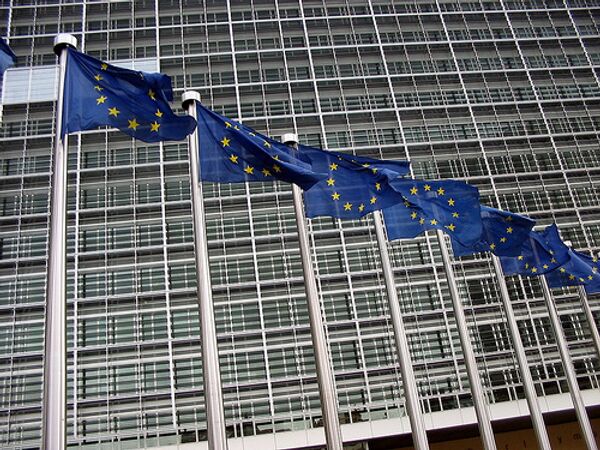BRUSSELS, November 21 (RIA Novosti) – Eurozone finance ministers withheld approval on Tuesday night for a vital 31.5 billion euro loan for Greece, which is teetering on the brink of a sovereign default, after 12 hours of talks in Brussels.
The Eurogroup will meet again on November 26 to complete "further technical work on some elements of this package," Eurogroup President Jean-Claude Juncker said in a statement following the finance ministers' meeting.
Juncker said, however, the Eurogroup “has made progress in identifying a consistent package of credible initiatives aimed at making a further substantial contribution to the sustainability of Greek government debt."
Eurozone finance ministers were expected to make a final decision on the scheduled 31.5 billion euro tranche of aid to debt-saddled Greece and resolve a dispute with the International Monetary Fund over a two-year extension of the Greek austerity program to 2022, enabling Athens to reduce sovereign debt to 120 percent of GDP.
Europe wants to give Greece more time to reduce its debt to GDP ratio, while the IMF's Managing Director Christine Lagarde has said she was unhappy with the change of the austerity program deadline, maintaining the appropriate deadline for Greece to reduce its debt was by 2020.
Greece has been receiving bailout loans since May 2010 and has so far received nearly 149 billion euros ($191 billion) of funds from Europe and the IMF, out of 240 billion euro promised in two bailout loans.
The country has had to resort to expensive short-term borrowing, while the European Union and the IMF have considered whether to release the latest 31.5 billion euro tranche of bailout funds.
Greece has had to implement severe deficit reduction measures in order to comply with international lenders' requirements for the bailout loans, such as mass redundancies of state sector employees, social welfare cuts and privatization. This has caused a wave of social discontent, triggering mass riots and general strikes.




